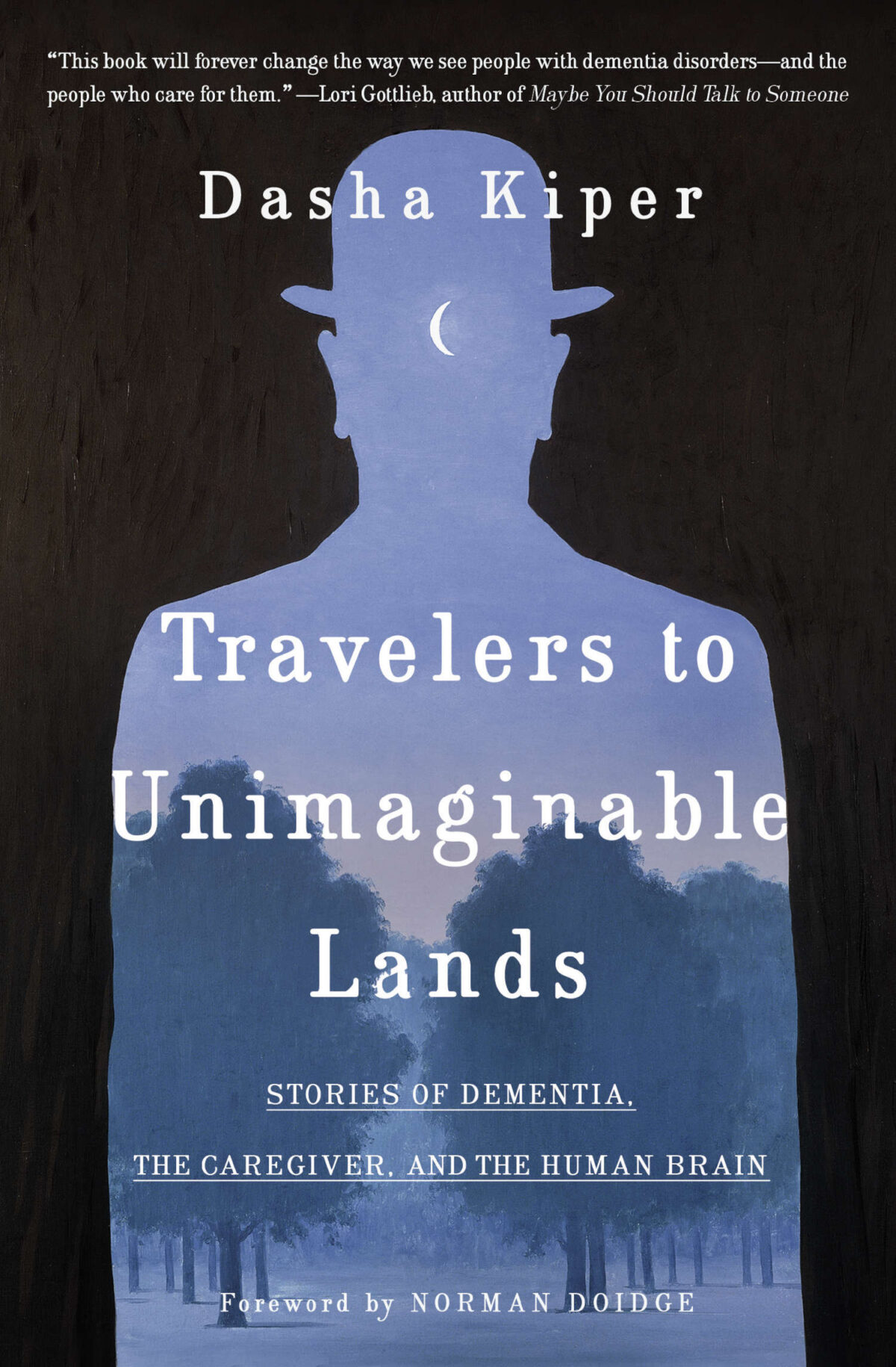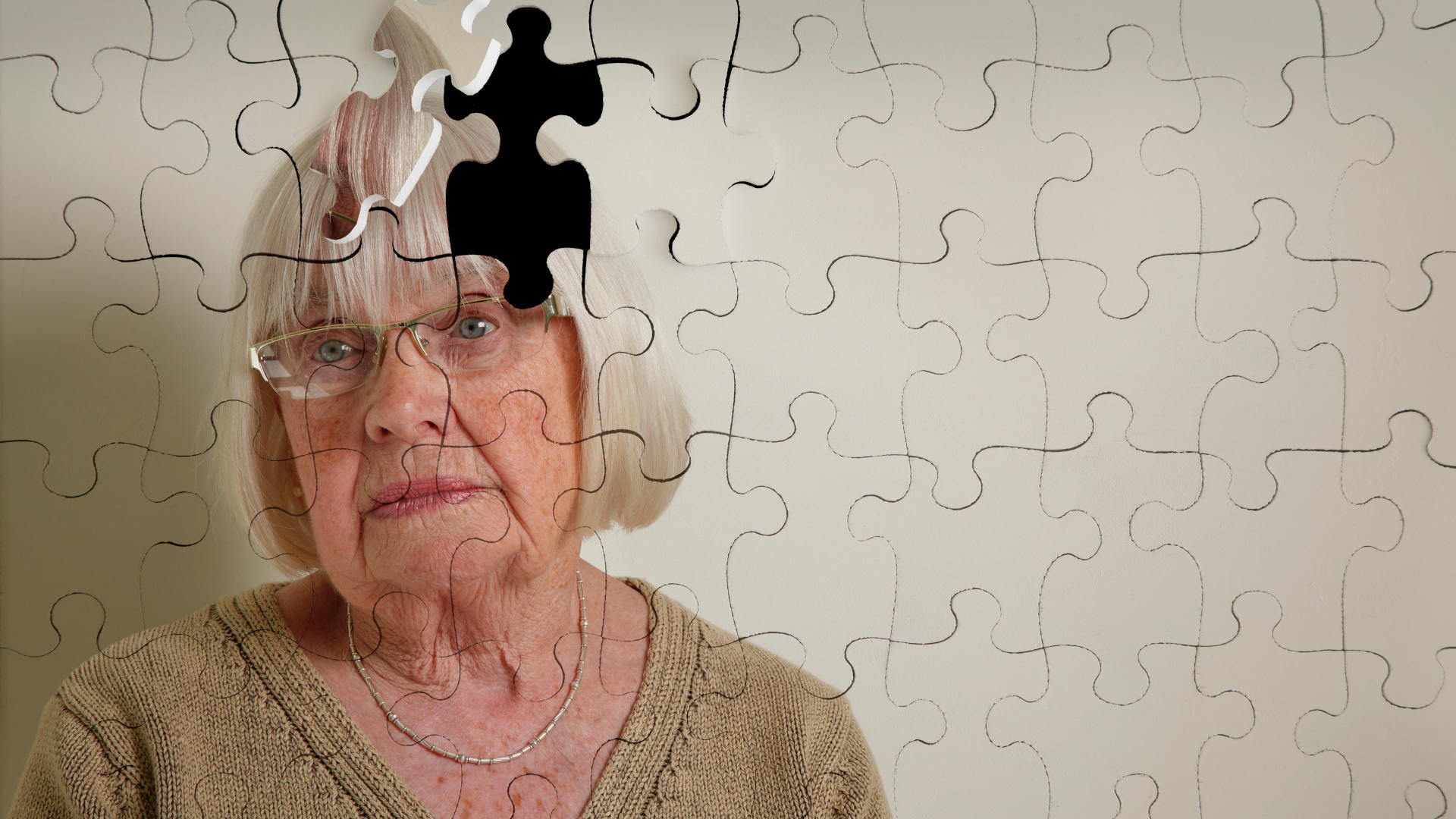At 25, Dasha Kiper moved in with a 98-year-old man. She’d just left a graduate program in clinical psychology; Mr. Kessler was a Holocaust survivor in the early stages of Alzheimer’s disease, whose son had hired Kiper as a live-in caregiver. One day, Mr. Kessler clambers onto a chair to replace the battery in a smoke detector. When he ignores her instructions to come down, Kiper loses her cool. She shouts that he’s incapable of changing the battery and doing much of anything for himself. Later, Kiper is filled with remorse. She should have known better than to yell at a nonagenarian with dementia.

BOOK REVIEW — “Travelers to Unimaginable Lands: Stories of Dementia, the Caregiver, and the Human Brain,” by Dasha Kiper (Random House, 272 pages).
This is the focus of Kiper’s “Travelers to Unimaginable Lands: Stories of Dementia, the Caregiver, and the Human Brain” — not the mind of the patient, but the caregiver. Often, the spouses, children, and loved ones of people living with dementia succumb to arguing or pleading with their patients, despite reason. “We want to reestablish a shared reality,” Kiper writes. “It’s not cruelty but desperation that drives us to confront them with the truth.”
Caregivers aren’t mere observers to cognitive decline but the “invisible victims” of dementia disorders, Kiper writes. They traverse warped realities that operate under different rules of time and memory. One caregiver says, referring to a famous case study by neurologist and author Oliver Sacks, it’s “like being an anthropologist on Mars.”
But a caregiver’s slip-up isn’t necessarily the result of character flaws or a lapse in compassion. Rather, Kiper shows the healthy brain is riddled with cognitive biases that impede the work of caring for a person with an impaired mind. This takes a heavy toll. “People always ask about the patient,” one exasperated woman tells Kiper, after recounting how her husband, who doesn’t recognize her, takes to locking her out of their apartment each night. She starts carrying a spare key to let herself in after he falls asleep. “Let me tell you something, the patient is fine; it’s the caregiver who’s going crazy.”
Dementia is an umbrella term that covers a range of symptoms related to cognitive decline including memory loss, impaired decision-making, and poor emotional regulation. Alzheimer’s disease is the most common form of dementia, with some 6.7 million Americans over 65 exhibiting symptoms of the brain disorder. In 2022, an estimated 11 million caregivers in the country provided more than $339 billion worth of unpaid care, according to the Alzheimer’s Association.
Kiper takes her debut book’s title from Sacks, who called neurological patients “travelers to unimaginable lands.” Kiper, who lives in New York and leads support groups for caregivers, responds, “Let’s not forget about the caregivers who must travel with them.”
With each chapter, she offers a case study of a patient and caregiver pair — with patient names and identifying details changed for privacy — diving into common roadblocks through accessible cognitive and neurological science. Why, for example, do we attribute intention to patients’ behaviors? The brain has evolved to “mind read” — psychologists’ term for our tendency to seek motivations in human behavior, a habit so ingrained that one might find themself yelling at a glitchy computer as if it’s misbehaving.
Kiper explores her questions with sensitivity, considering patients’ backstories — there is an anxious Ukrainian immigrant, a pioneering mother with impossible expectations, a survivor of sexual assault — and the complex relationship dynamics that develop as a result.
Take, for example, how difficult it can be for caregivers to see the disease. We meet Jasmine, the 36-year-old social worker who quits her job to care for her mother, Pat, who has Alzheimer’s. Pat often rummages through the fridge, removing items and forgetting them afterwards. In response, Jasmine peppers the walls with notes like, “DON’T TAKE FOOD OUT OF THE FREEZER.” At one point, the two squabble over who’s in charge. Pat, looking for the next night’s dinner, shoves Jasmine into the fridge when her daughter tries to intervene. Pat insists she’s been cooking long before Jasmine was born; she doesn’t need to be told what to do. Later, Jasmine tells Kiper her mother “has Alzheimer’s when it’s convenient and doesn’t when it’s not.”
Rationally, Jasmine knows her mother is sick and cognitively struggles to follow instructions. But it felt like her mother’s behavior was consistent with a long history of fighting for control in their strained relationship. To explain this, Kiper dives into the science of perception. If perception is an image, the brain doesn’t take in information with camera-like fidelity. The brain actively shapes the image, blending sensory input with expectations informed by previous experiences. Jasmine’s situation is a case of what Kiper calls “dementia blindness.” Since caregivers know their spouses or parents so intimately, minor but familiar cues can trick the healthy brain into thinking the patient is still healthy.
Something else caregivers must wrangle with is our deep-rooted belief in the self. Consider Elizabeth, the woman whose husband, Mitch, has forgotten who she is. Convinced she doesn’t belong in his home, Mitch orders her to leave. She protests, desperately furnishing evidence to prove her case. Their wedding photo? A fake, he reasons. Mail addressed to the two of them? Maybe they were married before, but not anymore. Later, Elizabeth regrets fighting with him, thinking she could have spared them both some heartache.
But Kiper doubts Elizabeth could have done so in the moment, reminding her that she’s not at fault for arguing with Mitch. She sees that Elizabeth’s arguments were born from a sense that deep down, her husband was still “in there.” On the other hand, that conviction can be a defense mechanism. If not for the self, Kiper writes, “who is it that we are suffering and sacrificing for?”
As Mitch’s disease progressed, and his cognitive functions waned, life for him and Elizabeth became more peaceful — a common arc for many families, Kiper notes. In their last session, Elizabeth tells Kiper she feels grateful for what the caregiving experience taught her of patience and love. In a knee-jerk reaction, Kiper says surely Elizabeth didn’t feel that way during the disease’s earlier stages. Later, the counselor wonders why she brought up that agonizing time. “I realized it came from a misplaced sense of protectiveness toward her,” Kiper writes. “I wasn’t ready to let Alzheimer’s off the hook.”
Writing from the therapist’s chair, Kiper offers a unique perspective. We listen as caregivers recount moments of chaos and confusion. Then we watch as Kiper takes it all in and offers counsel on the page. One woman, whose husband’s dementia intensifies his Catholic faith, confesses that she sometimes tells him it’s Wednesday instead of Friday, to head off questions about churchgoing. Kiper tells her plenty of caregivers do the same. When a man struggles to bathe his sick mother and she calls him perverted, he admits he angrily grabbed her by the shoulders before catching himself and exiting the room. Without judgment, Kiper soothes him, saying he left when he needed to.
It’s captivating, rich with the same vicarious wisdom as the work of “Couples Therapy” star Orna Guralnik, a psychoanalyst who helps distressed couples navigate their way to resolution.
“Travelers” is singular in its focus on caregivers. It’s not a book that offers best practices on caring for a person with dementia, nor does it explain the mechanics of Alzheimer’s. There are other texts for that. A couple of her clients, in fact, are straight-A student types, who have likely done all the reading. Still, they come to Kiper with deep psychological wounds.
This work explains why it’s so hard to put technical know-how into practice. At times, the book feels like it lacks momentum, with each chapter exploring yet another hurdle. But this also means that Kiper repeatedly extends grace to readers who may be caregivers, so when things go sideways, they may learn to forgive themselves.
With their patients and loved ones in another world, most caregivers experience profound loneliness. “With no one to validate the burden of their reality, they may become as volatile as the people they care for,” Kiper writes. They may discover a new and distressing capacity for flashes of rage, deceit, or cold-heartedness. Her book is a meaningful one not only for caregivers, but also the family and friends who want to better understand their experiences. We are not meant to struggle alone.
Lina Tran is science writer from the Alabama coast who is based in Milwaukee.











Comments are automatically closed one year after article publication. Archived comments are below.
There is a Self and the Self remains inside even if it is not expressed. We know this from instances of Terminal Lucidity, appearing even in those suffering severe Dementia for many years.